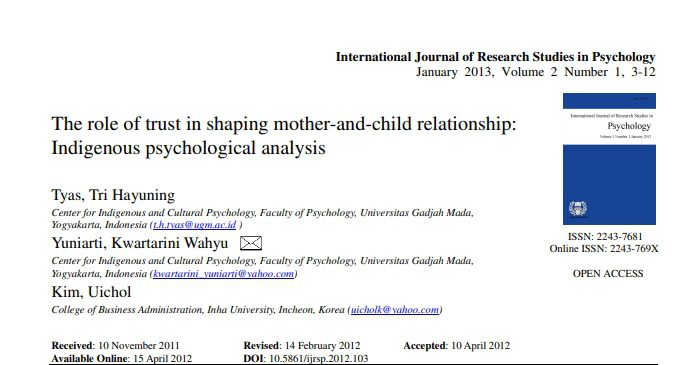
ABSTRACT. The purpose of this study was to examine the role trust plays in shaping the parent-child relation and the reasons why children trust and distrust their mother. A total number of 507 university students (males= 140, females=367) at the Universitas Gadjah Mada completed an open-ended questionnaire that asked how much they trust their mothers and the reason why they trust and distrust their mothers. The data was analyzed using indigenous psychological approach of analyzing the content of open-ended responses, categorization of the responses, and cross tabulating. Result from these study shows that 57.63% of participants’ trust their mothers to a great extent and 33.69% of respondents largely trust their mothers. Second, there are five main categories of reasons for trusting mothers and six main categories of reasons for distrusting their mothers that have emerged. First category focuses on mother’s personal quality such as honesty and reliability. Second, what mothers are able to bring into the life being that involved mother critical role for children surviving the world, physically, psychologically, and socially. Third, what exist between the relations counts the trust existence. Fourth, the perceived figure of mother. Fifth, the role of self in deciding when to trust. The six categories for distrust suggest the unconditional trust toward mother that indicate the strong bend of trust-relation between mother and children once it is established. It reaches to the conclusion that reasons for trusting mother is much colored by the spiritual and emotional nuance, whereas honesty and reliability, empathy, give the best, closeness and consanguinity, are factors that play quite important role in the development or establishment of trust to mother. From the reasons of trust and distrust, we learned that trust can play as the modality to consider act or to relate and as a product or result and is dynamic rather than static.
